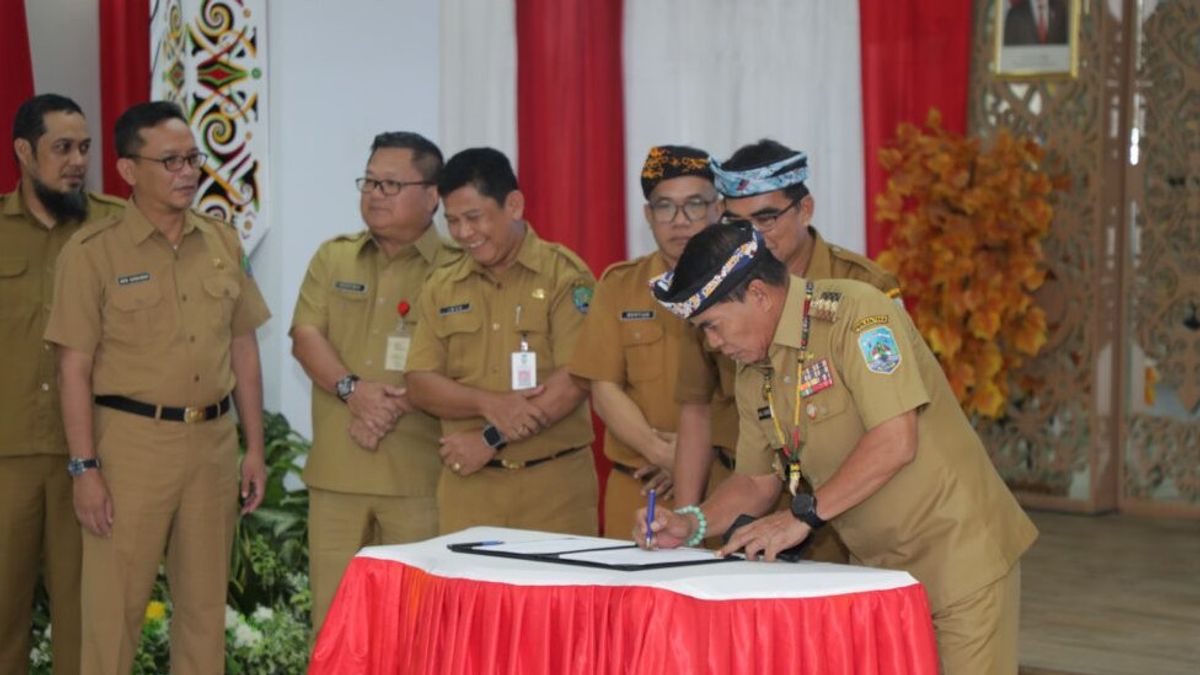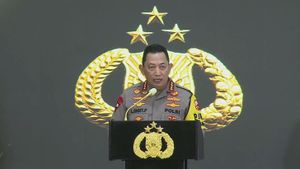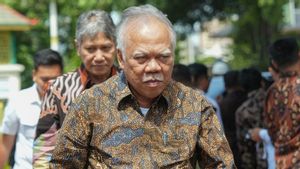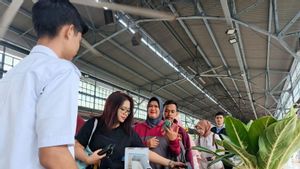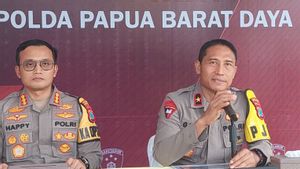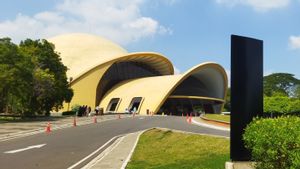TANJUNG SELOR In the draft Regional Long-Term Development Plan (RPJPD) of North Kalimantan Province, 5 main issues were identified in the implementation of development which were formulated into 11 strategic issues.
This was said by the Governor of Kaltara, Zainal A. Paliwang at the RPJPD Development Plan Deliberation Forum (Musrenbang) for North Kalimantan Province 2025-2045, Monday, June 10.
"The preparation of the RPJPD in the regional aspect is guided by regional spatial planning and carried out simultaneously, in coordination with the preparation of changes to the spatial plan for the North Kalimantan province," he said.
The five main problems in the implementation of regional development are formulated into 11 strategic issues, namely the acceleration of downstream industry as a result of natural resources, green economy transformation and the development of new and renewable energy, welfare and equitable distribution of regional development, improving the quality and competitiveness of human resources,
Social inclusion and gender equality, strengthening disaster resilience and adaptation of climate change, strengthening environmental governance, connectivity and regional accessibility, basic settlement infrastructure, border governance, and strengthening digital-based collaborative governance.
The governor hopes that we can observe the formulation of this strategic issue together until the development direction we will determine. With that regard, participation has been requested from legislative elements, district/city governments, representations of elements of government partners.
"We have asked all elements to be able to provide more concrete suggestions/input and provide an overview of the real regional conditions," explained the Governor.
The preparation of the RPJPD in the regional aspect is guided by the Tara Spatial Plan and is carried out simultaneously, as well as coordinated with the preparation of changes to the Regional Spatial Plan for North Kalimantan Province by taking into account recommendations from Strategic Environmental Studies and other development and sectoral planning documents.
It is explained that all parties need to understand that the drafted RPJPD has an important meaning in several ways. Starting from being a guideline for the preparation of the RPJMD; it becomes a guide for the preparation of vision and mission in the democratic party for regional head elections; and contains development directions that are in line with the National Long-Term Development Plan.
"In this regard, the RPJPD document was prepared not only to pay attention to regional issues, local and national issues, but also to pay attention to global (international) issues," he explained.
In this RPJPD period, Zainal emphasized that there is a big responsibility to bring Kaltara towards a better and more sustainable direction. In designing the RPJPD for the next twenty years, there are several global issues that need to be considered.
He continued, climate change is a serious challenge that needs to be the focus of planning. Increasing global temperatures, changing weather patterns, and other environmental problems require a strong adaptation and mitigation strategy.
"In this context, the RPJPD must integrate policies that support the development of renewable energy sources, sustainable waste management, and the preservation of natural ecosystems," he said.
Technological developments, including the 5.0 industrial revolution, are said to play a key role in driving economic growth and increasing productivity. Therefore, it is necessary to develop policies that support the penetration of information and communication technology in all sectors, and ensure that people have the skills needed to deal with this change.
Meanwhile, the acceleration of the downstream industry as a result of natural resources (SDA) is a priority in advancing the economic sector. Zainal emphasized that all parties need to maximize the added value of the natural resources produced by Kaltara, including ensuring the distribution of its benefits to the community fairly.
"In this case, of course connectivity is a crucial element in regional development. Improvement of transportation infrastructure and information technology will open access to border areas, remote and remote areas, increase connectivity between regions, and support economic growth evenly," he explained.
Inclusive development will be the main focus. Every policy must ensure that every level of society, without exception, can benefit from the development we designed.
This RPJPD was prepared based on the principles of participatory, transparent, and accountable. Each step taken must involve various stakeholders, ranging from the government, society, the private sector, academics, to the mass media.
"Good collaboration between all parties will ensure that every policy taken is truly effective and on target," he said.
The English, Chinese, Japanese, Arabic, and French versions are automatically generated by the AI. So there may still be inaccuracies in translating, please always see Indonesian as our main language. (system supported by DigitalSiber.id)
